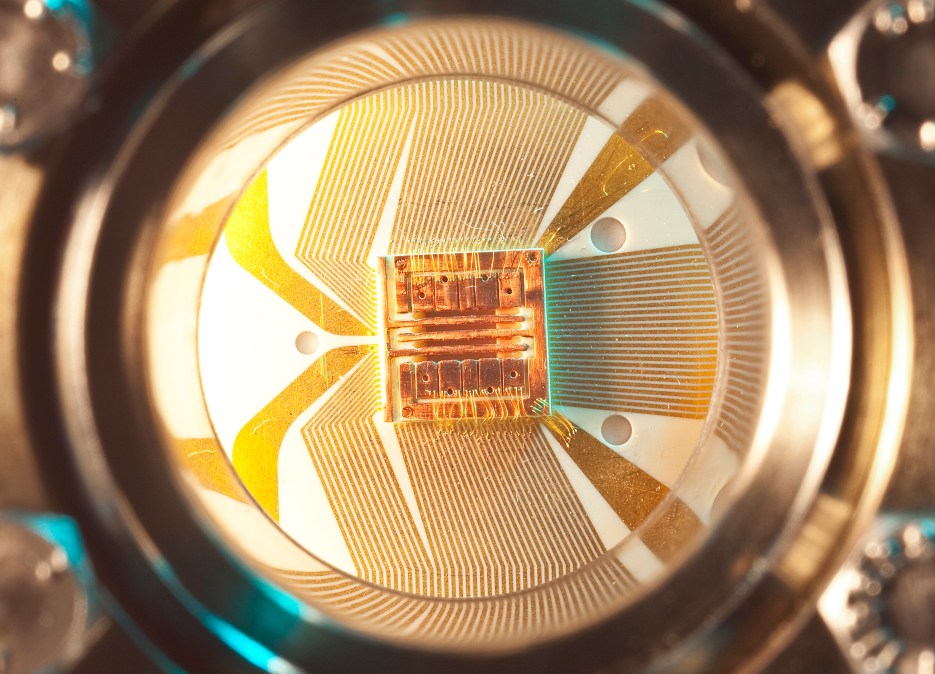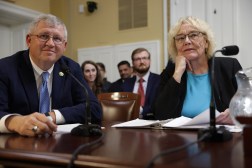Military to collaborate with allies on quantum navigation project

The U.S. military will soon partner with key allies to research how quantum information science could improve its navigation and location systems, a senior Air Force official said.
Michael Hayduk, chief of the Air Force Research Laboratory’s Computing and Communications Division, told the Defense Innovation Board last week that the service’s strategy to embrace quantum information science (QIS) includes an upcoming joint exercise between Air Force, Army, Navy and key allies, like the United Kingdom, Australia and Canada. Hayduk said the partners would detail the quantum “challenge program” in September.
“We’ve had a great discussion early on,” he said. “We are working on what we call a challenge problem in terms of how we can develop a quantum [positioning, navigation and timing, or PNT, system] and show real capabilities in the 2022 timeframe,” he said.
Quantum information science, which includes quantum computing, has recently captured the interest of many in Washington for its theoretical potential to deliver more powerful and reliable technological applications.
While quantum computing gets much of the attention because of its latent ability to increase computing power and possibly crack modern cryptographic systems, QIS includes other applications — providing more secure communications, precision navigation and timekeeping, for instance.
Hayduk said the Air Force sees the most rapid advancement around timing and sensing, with the possibility of establishing experimental technology within the next decade.
“We see capabilities being able to be out there — at least in the prototype phase, not necessarily talking operational capabilities — really in the five-year timeframe,” he said.
That technology could allow for applications like long duration inertial navigation and potentially serve as the successor to GPS, which the Department of Defense has recently been looking to move from as its primary mode of PNT.
Hayduk said utilizing QIS to develop more accurate atomic clocks could also allow for better synchronization across platforms like planes or satellites.
And while the timeframe for developing operational quantum computers and communications devices is projected beyond five years, those who have been following QIS development have long clamored for research collaboration among allies.
Hayduk said recent legislation like the National Quantum Initiative Act is welcomed for its efforts to coordinate quantum research in both the public and private sectors, especially as countries like the UK, Canada, Australia and China have invested heavily in the technology.
“It’s a whole-of-government type effort in a lot of these countries, which is very different than what the U.S. has,” he said. “If we want to ultimately lead in QIS and develop these applications for the US, we need a coordinated effort.”
What remains unclear is what aspects of quantum PNT the project will touch upon, as well as how the collaboration between the allies and the military branches will be coordinated. Hayduk told the Defense Innovation Board more information would be forthcoming.
“Stay tuned for that,” he said. “We’re just formulating it and will probably be discussing what that is in the September timeframe.”






